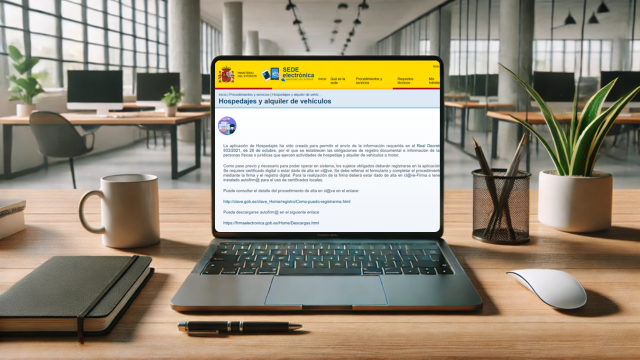Barcelona City Council has recently imposed sanctions on users of properties rented via the holiday home portal website Airbnb in an attempt to bring regulation into the short term holiday rental market in Spain. Law firms have been mediating with Airbnb to manage the sanctions, which have been imposed to force landlords of short-let properties to register with the Ministry of Tourism.
In order to clarify the legislation that applies to vacation landlords across Spain and wipe out unlicensed holiday rentals, a guide has been published which is available to landlords renting vacation apartments and here we take a closer look at some of the points covered in the guide.
What do I do if I receive a fine proposal?
When a landlord is suspected of renting out a property without first obtaining a license, they will receive a letter in the post that serves as a warning to them to register before further action is taken. It is important to respond to this written warning within 15 to 30 days by submitting details of intention to register or reasons for not doing so.
Obtaining a license to rent out private properties to holidaymakers is mandatory and for landlords failing to register their vacation homes, penalties are between €60,000 and €600,000 and are imposed alongside a suspension of activity for a maximum of two years.
One of the frequent arguments used by landlords when appealing the initial warning letter is that their house is lent to friends and family or even that there is no economic advantage in the arrangement. However, these arguments only stand up if landlords do not advertise the price when renting their property which is not actually possible with Airbnb.
What am I required to submit in response to a warning letter?
The Administration will examine the arguments you have presented in response to the warning letter and make a decision based on those facts. Keep in mind that in the majority of cases, the response to landlords trying to excuse themselves from registering their holiday rentals will be a resounding no. It doesn’t matter how strong or convincing your arguments are; if your holiday rental does not have the necessary license your local City Council will proceed to sanction.
The Judicial Route for Appealing Decisions
When the administration has made its resolution based on the arguments submitted by the landlord, the property owner has two options: either pay the penalty or appeal the decision. If you opt to pay the fine, it will be heavily discounted if paid within ten days, to encourage landlords to pay the amount and not go to court.
The second option is to formally appeal the decision through the judicial system. This is a relatively new area as it has not yet been explored and so there is no precedent set on this issue. It is also a very slow process to appeal that is made even slower by the fact there have not been enough cases resolved through this mechanism to establish jurisprudence.
In attempts to reduce the appeals process and make it less long-winded, there is a window of just six months for the administration to investigate the case and impose sanctions. If it fails to do so within this period, the landlord of the holiday rental property is able to claim that the case has passed the due date of expiry.
How to Deal with a Property Inspection
One of the possible ways authorities are able to assess the status of your property is by undertaking an inspection, either in the course of routine inspections or specifically for your case. It is also possible that after the initial warning letter, you will be visited by someone from your local town hall. In both cases you have to know what your rights are, what you can show and what you should not say.
The official usually appears to visit properties without prior notice, either because of a complaint or some other indication. By law, a domicile is inviolable which means that the inspector, even if accompanied by the police, has no right to access the interior of your property and they are prohibited from taking pictures. If they do so without your consent, they may be committing a crime, and if this happens you should bring it to the attention of your lawyer.
After asking you a series of questions, the official will draft a document and offer it to you to sign. Read it carefully and make sure you understand it fully and keep the copy that the inspector has to give you too. You are in your right not to sign this document, although according to lawyers whether you do or not is unlikely to have relevance in the future.
Fuster & Associates specialize in obtaining rental licenses on behalf of our clients. If you want to find out more about, contact us for more information





